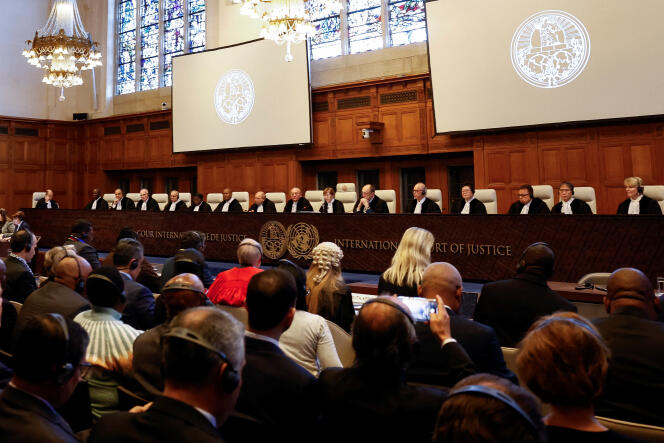


Seldom has a ruling from the International Court of Justice (ICJ) been so eagerly awaited. Following the case's referral to the UN's highest court by South Africa – which has accused Israel of committing genocide in the Gaza Strip – Palestinians and their supporters hoped that the judges in The Hague would order Israel to cease its operations in the coastal territory. Israel and its supporters, on the other hand, had hoped that the judges would quash the case by ruling Pretoria's request to be unfounded.
The result was a mixed bag. The ICJ did not go all the way to calling for a ceasefire in Gaza, but it legitimated South Africa's approach, ruling that there was a "real and imminent risk" to Palestinians' rights, such as their protection against genocide. To this end, the magistrates issued six provisional measures, the most important of which was a directive for Israel to "take all reasonable within [its] power to prevent genocide."
In reading the order, ICJ President Joan Donoghue reminded the judges that, at this stage, they were not to decide whether Israel was committing genocide against the Palestinians in Gaza. She noted that a thorough examination of the case could take several months or even years. Yet South Africa, which brought the case before the court on December 29, 2023, had requested urgent measures, and the judges granted this request with an overwhelming majority.
The interim protective measures set out by the ICJ were each supported by 15 or 16 of the 17 judges who ruled on the case. In addition to preventing the commission of acts of genocide and ensuring that its army complies with this obligation, this institution of the Hague ordered Israel to "prevent and punish the direct and public incitement to commit genocide."
The judges recalled the inflammatory statements made by several of Israel's top leaders. They pointed to declarations made by the Jewish state's president, Isaac Herzog, who said, "It is an entire nation out there that is responsible. It is not true, this rhetoric about civilians not aware, not involved. It is absolutely not true. They could have risen up." They also referenced defense minister Yoav Gallant who remarked, "We are fighting human animals," or that they were imposing a "complete siege": "No electricity, no food, no fuel. Everything is closed." These words were deemed as "dehumanizing" by South Africa, during the proceedings held in The Hague on January 11 and 12.
The ICJ also ordered Israel to "take immediate and effective measures" to enable the provision of basic services and humanitarian aid to the population of Gaza. The judges also called on Israel to "prevent the destruction and ensure the preservation of evidence related to allegations of acts" of genocide.
You have 55% of this article left to read. The rest is for subscribers only.
